Teaching English to Speakers of Other Languages (TESOL)
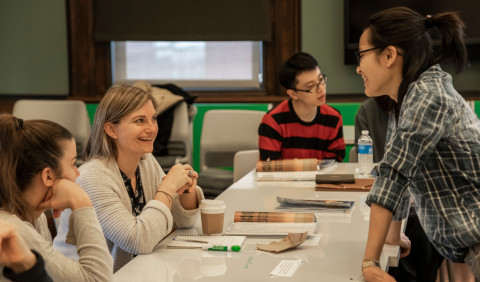
Full-time Summer (May to August) or Part-time (September to April)
The TESOL Certificate Program (TCP) leads to the completion of a Teachers College Certificate in Teaching English to Speakers of Other Languages (TESOL). The TCP offers participants from all over the world a unique balance of theory and practice and a hands-on, communicative approach to teaching English as a second language (ESL) or foreign language (EFL).
The Program is offered in both an intensive, full-time format in the summer (May to August) and a part-time format spanning across fall and spring semesters (September to April). Both the full-time and part-time programs are taught at the graduate level and presented in a hybrid format with half of the program taking place online and the other half onsite at Teachers College, Columbia University.
In each format, the Program consists of five required courses and students are able to put theories into practice by teaching in the Community Language Program, a language school for adults, which offers ESL classes to non-native speakers of English in the local community. Additionally, students are guided by a senior mentor teacher that supports them in the process of lesson planning, classroom management, and teaching.
The TESOL Certificate Program is ideal for those who are thinking about starting a career in TESOL, those who are career-changers, or for current teachers who would like to improve their skills.
- Upon completion, students are awarded: 28 Continuing Education Units (CEUs) approved by the International Accreditors for Continuing Education and Training (IACET) and/or a CLTE Certificate (280 hours).
- The Program meets the standards recommended by the TESOL International Association for short-term certificate programs and exceeds the 120-hour instruction standard often required for teaching abroad.
- Students who complete the program and are then admitted to the MA degree, can also transfer up to 6 credits toward an M.A. degree in Applied Linguistics or TESOL at Teachers College, Columbia University.
Full-time Summer Program
- Ideal for individuals who are ready to jump into a new career or for current teachers looking to develop new skills over the summer.
- Runs from May to August
- Online portion: mid May to early July (6 weeks)
- Onsite portion: early July to early August (4 weeks)
- Application Deadline: April
Part-time Fall-Spring Program
- Suited for individuals who are currently working or have other commitments.
- Runs from September to April with a winter break in December and January.
- Online portion: late September to mid December (10 weeks)
- Onsite portion: early February to mid April (10 weeks)
- Application Deadline: August
For more information, please email tesolcertprog@tc.columbia.edu, call 1.212.678.3459 or visit the TESOL Certificate Program website.
Upcoming Events
Online Information Sessions
Attend an info session to learn more about the Program from the program director and staff. Offered four to five times a year.
Virtual Open House
Attend our virtual open house to learn more about the Program and meet faculty, staff, and alumni. Offered twice a year.
Curriculum
Five Required Courses
Classroom Practices & Practicum
Classroom Practices introduces students to teaching methods and approaches in Teaching English to Speakers of Other Languages (TESOL). By examining different contexts, student populations, purposes, and approaches, students will be able to make informed decisions about language teaching methods, techniques, lesson planning, syllabi, materials, and classroom management. In the Practicum part of the course, students will be able to synthesize and apply the concepts and practices from the TESOL Certificate Program courses by designing and implementing lessons in a real ESL classroom, and critically reflecting on their own teaching. Students’ performance will be assessed based on completion of online assignments, participation in onsite class activities, and most importantly, their lesson planning and implementation in the practicum.
Second Language Acquisition
Second Language Acquisition introduces students to theories of second language acquisition and how we can use them to inform our teaching practices. Through cultivating an understanding of cognitive, social, and linguistic influences, students will discover how they can modify instruction to facilitate second language learning. Students will be assessed based on how they integrate what they learn throughout the course with practical applications in the second language classroom.
Pedagogical English Grammar
Pedagogical English Grammar introduces students to the principles of American English grammar and provides a theoretical basis for teaching grammar in ESL/EFL contexts. Students will obtain an understanding of the grammatical structures of American English, the kinds of errors that ESL/EFL learners make, and different approaches and practical techniques for teaching grammar. Students’ performance will be assessed based on their participation in online and in-class discussions, completion of regular grammar knowledge-building exercises and assignments, and completion of a final project that involves developing, in a principled manner, activities for teaching grammar in a particular instructional context.
Second Language Assessment
Second Language Assessment provides an introduction to theory and practice in second language assessment. Students will develop an understanding of the purposes and types of language assessment and will gain insight into the various standardized and alternative assessment instruments available to assess language skills. Students will practice designing assessment tasks and using scoring rubrics to grade papers. Students are assessed at the completion of each module through an examination of their contributions to online forum discussions, graded assignments, and essays. At the completion of the course, students are assessed based on their ability to apply theoretical concepts of assessment to a practical, real-world assessment context, and make inferences and conclusions about instruction and learning based on this application.
Intercultural Communication
Intercultural Communication introduces students to basic concepts in cultural and linguistic diversity and pragmatics as they relate to language teaching and classroom interaction. The course will require active participation, collaboration, and open dialogue as we examine how culture shapes our language choices, our approaches to teaching, our relations and interactions with our students, and our expectations of them. Students’ performance will be assessed based on completion of online assignments, participation in onsite class activities, and ability to integrate learning to practical applications in the second language classroom.
Practicum & Senior Teacher Mentoring
Along with coursework, students in the TESOL Certificate Program take part in a practicum, gaining hands-on teaching experience. On select Fridays during the onsite portion of the Program, students, in teams of 3 or 4, are assigned an ESL class at the Community Language Program (CLP), a language school for adults at Teachers College, Columbia University. Each team is assigned a senior teaching mentor who will provide individualized feedback and support on lesson planning, material development, and teaching through meetings and observations.
Final Reflection Paper
At the end of the program, students will write a culminating, final reflection paper to showcase the knowledge and concepts they learned in each of the program courses. In the process of articulating these key takeaways, students are better able to understand their approach to education and their personal teaching philosophy. The paper comprises multiple sections dedicated to the overarching topics from each course, and a final reflection which synthesizes the themes into a coherent discussion of teaching beliefs. This final reflection paper will be assessed by each of the course instructors in relation to their respective courses.
Faculty
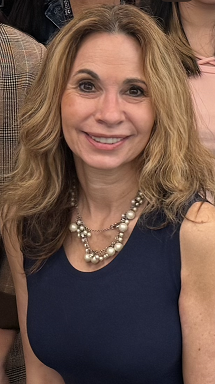
Dr. Donna DelPrete
Dr. Donna DelPrete began her teaching career as a college Italian language instructor. Shortly after receiving a Master of Arts (M.A.) in Italian literature from Boston College, Donna began studying linguistics, realizing her passion was in language analysis and second/foreign language pedagogy. She earned a Master of Education (Ed.M.), and a Doctor of Education (Ed.D.) in Applied Linguistics from Teachers College, Columbia University, where she has taught TESOL Practicum courses and academic writing. At Teachers College, she also supervises pre-service teachers seeking initial K-12 ESL certification in New York City public schools. Donna has mentored in the TESOL Certificate Program at Teachers College since 2017 and is now an instructor for Classroom Practices. She is also a part-time lecturer at the University of Pennsylvania's Graduate School of Education. At Penn, she teaches TESOL Practicum, capstone, and language pedagogy courses, and has re-designed a course (with Dr. Catherine Box) in Experiential Learning Design for Intercultural Communication. Donna also conducts professional development for teachers of ESL and Modern Languages, often focusing on issues surrounding intercultural communication and pragmatics. Along with teacher training, Donna’s research delves into the discursive interaction between mothers and daughters. Her work has appeared in Language & Communication and Language Research in Multilingual Settings. Donna teaches the Classroom Practices course in the TESOL Certificate Program.
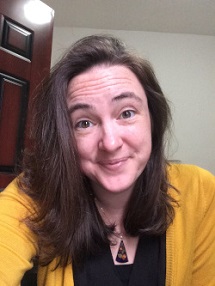
Lal Horan
Lal Horan is a doctoral student in Applied Linguistics at Teachers College, Columbia University. She earned her MA in TESOL from Portland State University. Over the last ten years, Lal has taught English as a second language across 5 countries, including 2 years spent teaching English and providing teacher training workshops as a Peace Corps volunteer in rural China. Her doctoral research uses conversation analysis to examine how sign languages are taught and learned as a second language. Lal teaches the Intercultural Communication course in the TESOL Certificate Program.
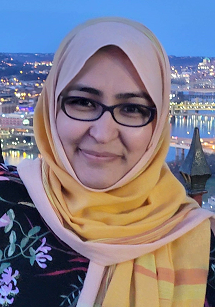
Farah Akbar
Farah Akbar is a doctoral student in the Applied Linguistics Program at Teachers College, Columbia University, where she previously earned an M.A. in TESOL. She also has an M.A. in English Literature and an M.A. in Applied Linguistics from the University of Karachi, Pakistan. She has taught ESL/EFL for almost 15 years in Pakistan and the U.S. She has taught TESOL Practicum and Second Language Acquisition courses to graduate students at TC. Farah has also taught in the M.A. TESOL program and the International English Language Institute (IELI) at Hunter College, City University of New York. Her areas of interest include second language acquisition (SLA), interactional feedback, naturalistic L2 development, computer-mediated communication (CMC), and teacher education. Farah teaches the Pedagogical English Grammar course in the TESOL Certificate Program.
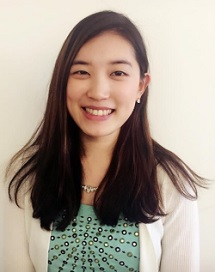
Soo Hyoung Joo
Soo Hyoung Joo is a doctoral student in the Applied Linguistics Program at Teachers College, Columbia University. She has taught ESL and EFL learners since 2008. She worked as an item writer and editor for second language assessments. She served as chair for TESOL/AL Roundtable and worked as Program Associate for the Applied Linguistic and TESOL Program at Teachers College. She is a doctoral researcher in the scenario-based language assessment research lab at Teachers College. Her research focus is on second language assessment, in particular learning-oriented assessment, scenario-based assessment, and the use of technology in assessment. She teaches the second language assessment course in the TESOL Certificate Program.
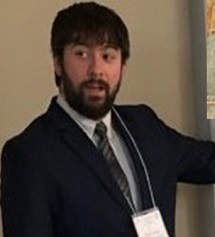
Mark Romig
Mark Romig is a doctoral candidate in Applied Linguistics at Teachers College, Columbia University. Before moving to NYC, he received a BA in Anthropology from SUNY Geneseo. After that, he received an MA in Linguistics from CUNY Graduate Center and a second MA in TESOL from CUNY Hunter. He has been working with adult ESL students for over a decade as both a teacher and a language program administrator in academic contexts and community-based organizations. Additionally, he has taught, supervised, and mentored teachers in training and graduate students at CUNY Hunter, Teachers College, and NYU. He is interested in classroom discourse, conversation analysis, teacher supervision, and learning material development. Currently, he is investigating how language, particularly grammar and vocabulary, is explained in adult ESL pedagogical interaction. Mark teaches the Second Language Acquisition course in the TESOL Certificate Program.
Admissions
When can I apply?
This program has rolling admissions, so you can apply any time during the year to be considered for the upcoming full-time or part-time programs. For application deadlines, please refer to our academic calendars:
Who can apply?
- Applicants must hold a bachelor’s degree from an accredited college or university. The only exception is graduating seniors, who receive provisional acceptance. In order to receive final acceptance, graduating seniors must submit a copy of their diploma before the start of the program.
- Teaching experience is not required to apply to the TESOL Certificate Program.
Application Requirements
In order to be considered for admission the online application and supporting materials must be submitted by the established deadlines.
The application includes:
- Completed online application
- Personal Statement explaining your motivation for applying to the TESOL Certificate Program and how the program aligns your personal and professional goals (minimum 500 words).
- Two letters of recommendation. They can be academic or professional.
- Current CV or resume
- Copy of most recent academic degree transcript (e.g., Bachelor’s, Master’s, or Doctoral). Upon admission, the official transcript will need to be sent to the Program office before the registration deadline.
- Non-refundable application fee of $75
Admission Decision & Notification
Applications will be reviewed upon receipt of the application fee and all documents above. It may take up to three weeks to process and review the application. Applicants will be officially notified about admission decisions by email.
For step-by-step instructions on completing the online application, click here.
Tuition and Fees
Tuition Payment
Tuition is $6,800 regardless of which program you choose (full-time or part-time). A $500 non-refundable deposit is due within two weeks of acceptance, with the remaining $6,300 due by the tuition (registration) deadline. You should plan on spending approximately $250 on books and supplies. While we don't offer financial aid or scholarships, we do have a Deferred Payment Plan, which would allow you to pay tuition in three equal installments. Please reach out to us if you'd like to learn more about how it works.
Refund Policy
You are advised to review the refund policy below before you submit the program tuition payment. Please note that the tuition deposit and application fee are non-refundable.
Refund Deadline
The refund deadline is 7 days after the program start date. Refunds will NOT be granted after the refund deadline.
Early Refund Request:
If you request a refund more than 7 days prior to the program start date, you will receive a full refund. To make an early refund request, the student must email tesolcertprog@tc.columbia.edu and include the reason for cancellation.
Late Refund Request:
Refund requests made between 7 days prior to program start date and the refund deadline (i.e., 7 days after the program start date) will be subject to a $200 cancellation fee. To request a refund during the late refund request period, the student must email tesolcertprog@tc.columbia.edu and include the reason for cancellation.
Refunds will NOT be granted after the refund deadline, which is 7 days after the first day of the Program.
For questions about our refund policy, please contact our office at tesolcertprog@tc.columbia.edu